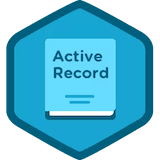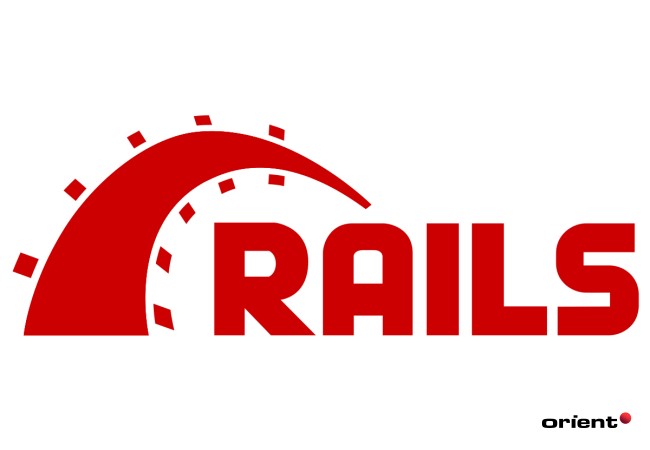
Service Scope
Ruby Development Services for Your Needs
Empower your business with a full suite of Ruby development services from Orient Software, designed to drive innovation and optimize performance.
Ruby Web Application Development
By leveraging the power of Ruby on Rails and Sinatra, our experts can create high-performance web applications with rapid time-to-market.
Custom Ruby Software Solutions
Design and build bespoke Ruby-based tools—command-line utilities, background workers, automation scripts, or integrations—to streamline your internal workflows.
Ruby API Development
Enhance your software capabilities with our Ruby-based API development services. We craft secure, high-performance APIs that enable seamless integration with third-party providers.
Ruby CMS Development
We leverage Ruby's capability to create CMS platforms that simplify the process of managing and optimizing website content.
Ruby E-commerce Development
Our Ruby developers are experienced in developing comprehensive e-commerce solutions to turn visitors into customers.
Ruby Migration
By harnessing Ruby's powerful tools, we can version, update, and maintain database schemas efficiently, minimizing downtime and supporting seamless data evolution.
Why choose us
Break Through Barriers with Our Top Ruby Developers
With 350+ IT experts specialized in Ruby & Ruby on Rails, we provide the skill sets needed to enhance your internal capabilities and drive project success.
Get Your Ruby Team
Fast Onboarding for Ruby Teams
Get your full-fledged Ruby team within 2 weeks, with seamless integration for rapid, high-quality delivery.
Highly Scalable Ruby Solutions
We help create custom Ruby solutions that are tailored to your needs, whether it’s a feature-rich web app or a complex system.
Flexible Engagement Models
We offer a range of flexible engagement options, from dedicated teams to short-term project support, ensuring you have the right resources instantly.
Agile Development Approach
We follow agile practices to keep plans flexible and deliver Ruby projects on time. Our approach encourages regular feedback and continuous improvement.
Ruby Projects We Deliver
Marketplacer Successfully Developed 3+ Integration Platform using Ruby
By partnering with Orient Software, Marketplacer could apply Ruby and its frameworks to develop scalable integration solutions capable of bidirectional synchronization between multiple commerce platforms.
Read the full case study
Our Proven Ruby Development Process
Step 1Requirement Analysis
Step 2Architecture Design
Step 3Development
Step 4QA & Testing
Step 5Deployment & Integration
Step 6Maintenance & Support
Partner with a Trusted Ruby Development Company to Bring Your Vision to Life!
Get Your Ruby Team
Ruby Ecosystem That Drives Our Successful Deliveries
Our team blends technical know-how with a robust Ruby tech stack to deliver end-to-end solutions.

ActiveRecord

Sequel

PostgreSQL

DataMapper

Sidekiq

Resque

Delayed Job

Grape

GraphQL-Ruby

Sinatra

Roda

RubyGems

Bundler
Enabling Growth Across Industries with Our Ruby Services
Healthcare & Life Sciences
Financial Services
Information Technology
Insurance
Education
eCommerce
Travel & Hospitality
Human Resources
Retail
Manufacturing
Healthcare & Life Sciences
Financial Services
Information Technology
Insurance
Education
eCommerce
Travel & Hospitality
Human Resources
Retail
Manufacturing
Flexible Engagement Options for Your Ruby Project
Ideal for: Businesses requiring deep technical alignment and in-depth collaboration.
Long-Term Continuity
Maintain project knowledge and reduce ramp-up time with a team dedicated to your long-term roadmap.
Exclusive Project Focus
Get our software development team to work solely on your project, ensuring faster delivery and higher quality.
Scalable Capacity
We can easily scale the Ruby development team up or down based on your evolving business and technical needs.
Improved Code Consistency
We focus on continuous process improvement, implementing best practices, and adopting the latest tools as the project evolves.
Get a Free Consultation
Ideal for: In-house teams requiring additional Ruby expertise to boost capacity and fill skill gaps.
Access to Specialized Talent
Get the right experts skilled in Ruby and Ruby on Rails, along with hands-on experience in related technologies and modern frameworks.
Fills Skill Gaps Quickly
Instantly strengthen your team with our seasoned Ruby developers who integrate seamlessly and contribute from day one.
Cost Control
Augment only when needed and gain our experts' support without the overhead of full-time hires.
Flexible Engagement
Get different engagement models that match your team’s requirements and project timeline.
Get a Free Consultation
Ideal for: Companies that need a full-scale Ruby expert team to deliver complete software solutions.
Full Development Ownership
Get the self-managed team that handles your full SDLC, ensuring the product is delivered on time and aligned with your business goals.
Broad Technical Expertise
Besides Ruby and Rails, our team is proficient in front-end frameworks, cloud platforms, APIs, databases, and more.
Security & Compliance
We implement robust security practices and align with industry standards to protect your software and user data.
End-to-end Project Support
From idea to launch and beyond, we provide continuous support, ensuring smooth execution and timely delivery.
Get a Free Consultation
Ideal for: Businesses requiring deep technical alignment and in-depth collaboration.
Long-Term Continuity
Maintain project knowledge and reduce ramp-up time with a team dedicated to your long-term roadmap.
Exclusive Project Focus
Get our software development team to work solely on your project, ensuring faster delivery and higher quality.
Scalable Capacity
We can easily scale the Ruby development team up or down based on your evolving business and technical needs.
Improved Code Consistency
We focus on continuous process improvement, implementing best practices, and adopting the latest tools as the project evolves.
Ideal for: In-house teams requiring additional Ruby expertise to boost capacity and fill skill gaps.
Access to Specialized Talent
Get the right experts skilled in Ruby and Ruby on Rails, along with hands-on experience in related technologies and modern frameworks.
Fills Skill Gaps Quickly
Instantly strengthen your team with our seasoned Ruby developers who integrate seamlessly and contribute from day one.
Cost Control
Augment only when needed and gain our experts' support without the overhead of full-time hires.
Flexible Engagement
Get different engagement models that match your team’s requirements and project timeline.
Ideal for: Companies that need a full-scale Ruby expert team to deliver complete software solutions.
Full Development Ownership
Get the self-managed team that handles your full SDLC, ensuring the product is delivered on time and aligned with your business goals.
Broad Technical Expertise
Besides Ruby and Rails, our team is proficient in front-end frameworks, cloud platforms, APIs, databases, and more.
Security & Compliance
We implement robust security practices and align with industry standards to protect your software and user data.
End-to-end Project Support
From idea to launch and beyond, we provide continuous support, ensuring smooth execution and timely delivery.
Ready to Launch Your Ruby Project?
Schedule a quick call to discover how our Ruby developers can accelerate your project.
20
Years in operation
100
Global clients

Full Name
Company
I'm interested in
Tell us about your project
*By submitting this form, you have read and agreed to Orient Software's Term of Use and Privacy Statement
Frequently Asked Questions (FAQs)
What is Ruby Development, and Why Should I Choose It for My Project?
Ruby development refers to creating software applications using Ruby —a programming language known for its simplicity and productivity. Most commonly used with the Ruby on Rails framework, Ruby enables developers to build powerful, scalable web applications quickly and efficiently.
Recently, many startups and enterprises have chosen Ruby due to its enormous benefits. Here are some reasons that you should consider choosing Ruby for your software project:
- Rapid development: Ruby on Rails comes with built-in conventions and tools that speed up development, allowing you to bring your product to market faster.
- Clean, maintainable code: Ruby’s syntax is easy to read and write, which results in clean, maintainable code that reduces technical debt over time.
- Strong ecosystem: A vast library of open-source gems (plugins) allows developers to add features without reinventing the wheel.
- Scalable architecture: Ruby is a proven choice for startups and large-scale enterprises alike, supporting applications with millions of users.
What Types of Applications Can Be Developed Using Ruby?
Ruby is a versatile language that supports a wide range of application types. Its developer-friendly syntax makes it ideal for both simple and complex projects.
- Web Applications
- MVPs (Minimum Viable Products)
- APIs and Backend Services
- eCommerce Platforms
- Content Management Systems (CMS)
- Workflow Automation Tools
What Role is Included in Your Ruby Development Services?
Our Ruby development services provide a comprehensive, cross-functional team tailored to meet your project’s technical and business needs. Whether you require full dedicated team of staff augmentation, we ensure the right mix of expertise is in place to deliver results efficiently and reliably.
- Ruby Developers are at the core of our service. They are responsible for handling backend logic, integrations, and database design. Proficient in Ruby and Ruby on Rails, our developers follow clean code principles, TDD, and modern best practices to ensure long-term stability.
- Frontend Developers work closely with backend engineers and designers to create interactive user interfaces. They’re also proficient in frameworks like React and Vue.js.
- QA Engineers provide comprehensive testing approaches to identify and resolve bugs early.
- DevOps Engineers support your project’s infrastructure and deployment by managing cloud environments, implementing CI/CD pipelines, and monitoring system performances.
- Project Managers lead the project from a delivery and coordination perspective. They handle sprint planning, track progress, facilitate communication between teams and stakeholders, and ensure that milestones are met.
What Factors Should I Consider for Outsourcing a Ruby Project?
When it comes to outsourcing a Ruby development project, the strategy’s success depends on choosing the right partner and managing the collaboration effectively. Some key factors that you should consider include:
- Technical expertise in Ruby and Ruby on Rails
- Team composition and roles
- Their communication and collaboration approach
- The cost of the services
- Their ability in security and compliance
- Review testimonials, case studies, and references
Does Orient Software Do Custom Ruby Development?
Yes, Orient Software offers custom Ruby development services. We specialize in building high-quality, scalable web applications tailored to your specific requirements using Ruby and the Ruby on Rails framework. Moreover, our experts are also proficient in related technologies, including front-end frameworks (React, Vue.js), cloud platforms (AWS, Heroku, Docker), APIs, databases (PostgreSQL, MySQL), and more, helping us deliver complex, scalable solutions.
Additionally, our services encompass the full development lifecycle, including planning, architecture design, front-end and back-end development, API integrations, quality assurance testing, deployment, and ongoing maintenance.
How Do We Get Started with Your Ruby Development Services?
We’d love to connect and explore how our Ruby expertise can help bring your vision to life. Get started easily with our simple process:
- Schedule a Consultation Call: Drop us a message and our consultants will contact you shortly to set up a meeting, in which we will understand your vision and determine how our Ruby development services can assist you effectively.
- Define the Solution and Team Structure: Based on your needs, we’ll recommend the most suitable development approach, outline the project scope, and propose a team structure that may include Ruby developers, QA engineers, DevOps specialists, and project managers. You’ll receive a clear project timeline and delivery roadmap.
- Kick-Off Development and Stay Aligned: Once the team is in place, we’ll begin development with a clear sprint plan, regular check-ins, and milestone reviews. Throughout the process, we maintain close collaboration—incorporating your feedback to ensure the end product meets your expectations.




















